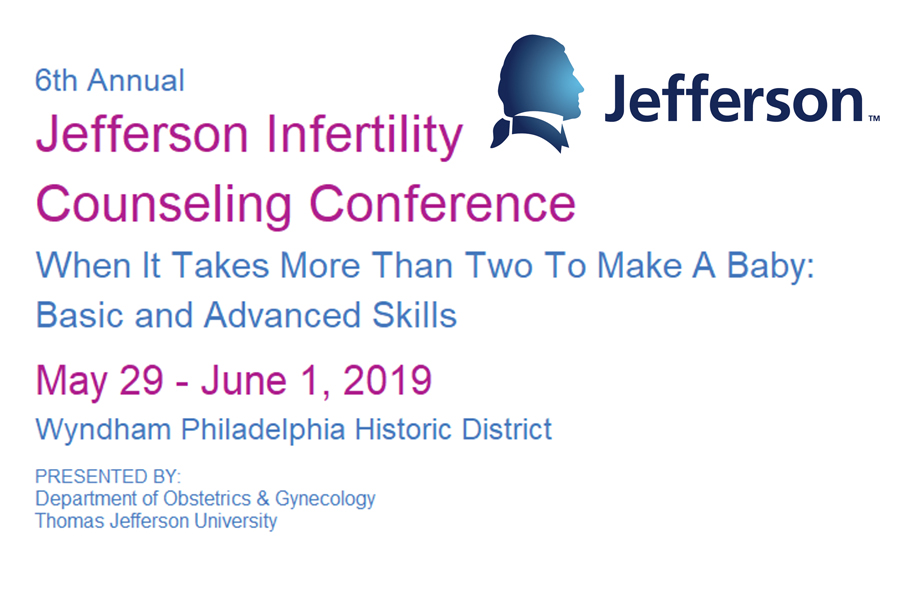A recent study found 63 percent of LGBTQ millennials are considering growing their families
Doctors using the wrong pronouns. Considering freezing eggs or sperm before transitioning. Deciding which person in a couple should carry the child.
These are some of the many concerns LGBTQ individuals and couples encounter in the world of fertility treatments.
Lisa Schuman, founder and director of New York-based The Center for Family Building, will train medical and mental-health professionals on how to interact with LGBTQ people doing fertility treatments at the sixth-annual Jefferson Infertility Counseling Conference.
The convention hosts medical professionals to explore psychological, ethical and legal issues in their field. It will run May 29-June 1 at the Wyndham Philadelphia Historic District on Fourth and Arch streets.
Thomas Jefferson University’s Department of Obstetrics and Gynecology will present the event.
Schuman has advocated for LGBTQ families in the medical field for more than 20 years.
“It’s very frustrating having been in this industry for so long, feeling like everyone doesn’t feel totally comfortable at every clinic. You don’t just always feel comfortable,” she said. “I really want to educate people in the medical field about issues in the LGBTQ community and how to think about those issues and how to think about treating their patients.”
A February study by the Family Equality Council, a nonprofit dedicated to advancing LGBTQ family rights, found that 63 percent of LGBTQ people ages 18-35 are considering becoming first-time parents or having more children.
The family-planning gap between LGBTQ and non-LGBTQ millennials has narrowed compared to older generations, the report indicates, with 48 percent of LGBTQ millennials actively planning to grow their families and 55 percent of non-LGBTQ millennials doing the same.
Most of these LGBTQ people will use foster care, adoption or assisted reproductive technology to expand their families, according to the study.
For Schuman, this uptick in LGBTQ child-rearing makes it important to educate medical professionals on the gay community, especially about transpeople.
Her talk emphasizes trans fertility issues like transitioning teens who want to freeze their eggs or sperm, how going off hormones will affect transpeople emotionally and whether transwomen can produce sperm if they feel uncomfortable in their bodies.
These struggles could impact patients’ mental health and family-planning choices because fertility treatment is hard to begin with, Schuman said.
“If you feel like your doctor is not accepting of you, if you’re feeling frustrated or resentful because you…can’t believe you have to pay so much money for these treatments, that, ‘If I were gay I wouldn’t have to deal with this,’” Schuman said, “and on top of it you’re not comfortable in the clinic, I can understand if people would want to give up [fertiilty treatment].”
Schuman appeared on the May 6 “Shrinks and Family Planning?” episode of “If These Ovaries Could Talk,” a podcast launched in 2017 that is hosted by two lesbians and centers around LGBTQ sex, families and relationships. Cohosts Jaime Kelton and Robin Hopkins, who live in New York City, have each undergone fertility treatments.
“I wanted to be treated just like a person who needed something, versus a person who was broken, because that’s what it felt like,” Hopkins said of her experience with fertility treatment. “You were in those big lobby rooms with women crying and all that and there was a lot of emotion and energy in those huge waiting rooms.”
Hopkins had an 8-year-old son and a 10-year-old daughter via intrauterine insemination, a type of fertility treatment.
Many LGBTQ people find fertility treatment clinics through “gay drafting,” or going to places recommended by friends within the gay community, Kelton said, because websites don’t always make it clear whether an institution is gay-friendly.
“They might say they’re gay-friendly, but the reality is they have worked with one gay couple at all and they are for heterosexual couples and they are just trying to plug us into their system,” said Kelton, who gave birth to her 18-month-old child through intrauterine insemination.
While LGBTQ-friendly clinics are becoming more prevalent, there is still a long way to go, she added.
Schuman said she hopes the medical professionals attending her Philadelphia talk will leave with a better understanding of LGBTQ fertility issues that “they’re not quite familiar with yet, but will be in their world soon.”
“That’s really important that they are familiar with the things that their patients are going to go through, because they’re going to be faced with them,” she added. “It’s going to feel very lonely for their patients if they don’t understand.”
